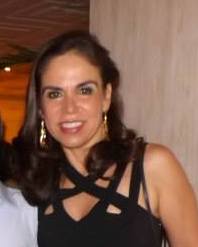Language which comes up during the lesson
I have heard it being called ‘emerging language‘ and ‘incidental language‘. However, I prefer ‘emerging unplanned language ‘ (EUL) as ‘emerging language’ is often used in a wider language acquisition sense and ‘incidental’ can imply something of minor consequence, which it is not. If anyone has an existant word, or a better one, then please let me know.
So what are we talking about? I am referring to the language which arises during the actual delivery of the lesson. The language which is ‘unplanned’, so to speak. The language which is not imposed by the teacher but which comes from the learners as they are engaging in the lesson. EUL may arise in the form of a question asked by a student (‘how do you say maré in English?’) or when a student uses L1 when he or she doesn’t know the English equivalent. In this case, the teacher will provide the word in the L2. EUL is also not restricted to single lexiical items, but includes lexical phrases and syntax.
Having to deal with this language has become more an issue for teachers as new approaches and methods have taken hold. In the past, the audio-lingual and present-practice-production (PPP) methods gave the teacher more control over the language which was produced in the classroom. The opportunities for unplanned language to emerge during the lesson were limited. However, the adoption of methods which are more student centred, such as Task Based Learning (TBL) and Dogme, has meant that there are now many more opportunites for EUL to arise.
This has proved to be a double edged sword for teachers. In my opinion, one reason why teachers may shy away from new fangled approaches such as TBL and Dogme is that they are unwilling to step outside of their comfort zones and relinquish control, especially of the language which is produced. On the other hand, ‘riskier’ approaches like TBL and dogme can make teaching a whole lot more interesting in that a far richer range of language is generated.
So, why is EUL important? It is important because the language does not come from the teacher but is generated by the students and is a reflection of their language needs. So, this language is not imposed from above but comes from below, so to speak. It illustrates students stretching their language boundaries. As Gaughn says, `It is language sticking its head above the trenches – it is language use above and beyond the call of duty` (Gaughn, 2012). So, the student who says ‘the maré is high today’ is a personification of Krashen’s i + 1 formula and Vygotsky’s zones of proximal development. You would also think that this language, as it comes from the students, is more relevant and meaningful to them, and therefore they are more likely to memorise and ‘learn’ the language item.
As such, we need to do something with this EUL as it arises in the classroom. I have often seen teachers respond to EUL by ignoring it completely, or with a verbal translation or a brief description. The problem with this is that unless the learner writes down the word, the language may be lost forever by the time the bell rings. It also means that the other learners in the classroom might not pick up on the word, even though it may be just as useful for them. Either way, it is another opportunity lost.
In order to make the most of the sometimes rich array of EUL which comes up during a lesson, we need to record this language. In my opinion, the best place to do so is in a dedicated section of the whiteboard. So the first step is that teachers have to listen to their students very carefully and be prepared to deal with EUP. When it arises the teacher has to then make an immediate decision as to how to deal with it i.e to board or not to board? Upon deciding to board the language, we need to think about how we are going to board it. Will I just write down the word? Will I draw a little picture or a translation to clarify meaning? Will I provide a synonym or an antonym? Will I highlight the word stress because this might be problematic? Will I highlight the schwas? There are loads of things you can help students to notice. You then have to get the students to make a record of the language. It doesn’t even have to be all the UEL. I have often asked learners to make a record only of the language they might find useful or interesting. They can write it down in vocabulary books, take a photo using their smart phones or write it on class vocabulary cards for later revision. The possibilities are endless.
I am not suggesting that the teacher has to board all of the EUL by that comes up during a lesson. The teacher has to make a decision in real time about whether or not to board the language. This decsion will be affected by a number of factors such as the language item in question (how relevant is it to the lesson? how useful is this language in terms of the level of the learners and their interests? how useful might it be for other students in the class to ‘know’ this language?), the stage of the lesson (are students preparing for a speaking task?), etc. The variables are many and the decision to board or not to board is not as easy as it sounds.
We should be encouraging learners to push the boundaries of their language and if we do so successfully, then we can expect a lot of EUL to be generated. A colleague told me recently that you can always tell a ‘good’ lesson by looking at the board at the end of the lesson. If it is packed with new and interesting language, you can be pretty sure the students were engaged in the class.




